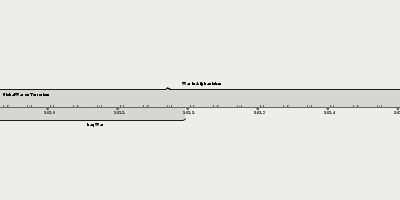2024 Israel–Lebanon ceasefire agreement (27 nov 2024 – 18 févr. 2025)
Description:
On November 27th, 2024, a ceasefire agreement was signed by Israel, Lebanon, and five mediating countries, including the United States. Hezbollah attacked Israel on October 8th, 2023, leading to a year of cross-border fighting, and on October 1st, 2024, Israel invaded Lebanon. The agreement mandates a 60-day halt to hostilities, during which Israel must withdraw its forces from Southern Lebanon, and Hezbollah must withdraw its forces to north of the Litani River. A five-country monitoring panel, led by the United States, would oversee the implementation, with 5,000 Lebanese troops deployed to ensure compliance. The agreement does not preclude either Israel or Lebanon from acting in self-defense, but Israeli and Lebanese officials disagreed with what that entails. Since the ceasefire went into effect, Lebanon's Ministry of Public Health claimed Israeli attacks on Lebanon killed at least 83 civilians, while Israel said dozens of Hezbollah fighters were killed in the midst of ceasefire violations. On January 26th, 2025, the U.S. extended the agreement until February 18th. Once this deadline lapsed, Israel withdrew from populated areas in southern Lebanon but declared that it would temporarily remain in five "strategic" Lebanese positions along the border.In November 2024, US envoy Amos Hochstein met with Lebanese and Israeli leaders to negotiate the ceasefire deal. In Lebanon, he met with Lebanese Speaker of the Parliament Nabih Berri, who had Hezbollah's support to negotiate. On November 20th, Hezbollah Secretary-General Naim Qassem approved the deal. France was added as a mediator to the deal after it walked back on its statement that it would arrest Benjamin Netanyahu for alleged war crimes. After some delays from the Israeli side, Hochstein threatened to withdraw from negotiations unless Israel moved forward with the deal. On November 26th, Israel's security cabinet endorsed the agreement with a 10–1 vote. The ceasefire was hailed as a significant accomplishment for the administration of US president Joe Biden, with Biden stating that the agreement was "designed to be a permanent cessation of hostilities."
The 2006 Lebanon war ended with UN Resolution 1701, which called for Israel to withdraw from Lebanon and for Hezbollah to disarm and withdraw north of the Litani River. However, it was violated by both sides, as Hezbollah continued to accumulate arms and failed to withdraw north and the Israeli military continued to violate Lebanese airspace in the absence of hostilities. Due to economic crises, lack of resources, and historic weakness compared to both Hezbollah and Israel, numerous concerns have been raised regarding the Lebanese Armed Forces' ability to enforce both Resolution 1701 and the 2024 ceasefire.
As of December 3rd, 2024, Israel has been accused of dozens of ceasefire violations, allegedly killing at least 15 people, including a Lebanese Army officer and several civilians. Israel said its attacks targeted Hezbollah fighters south of the Litani or imminent threats to its troops. Hezbollah has also allegedly violated the ceasefire on numerous instances by moving its fighters south of the Litani, and has fired on Israel Defense Forces at least once without causing casualties.
As of May 12th, 2025, large-scale fighting between Israel and Hezbollah had not resumed despite the ceasefire's expiry and the lack of a follow-up agreement. Though Israeli civilian areas were struck by rocket fire from Lebanon multiple times in March 2025, leading to retaliatory Israeli strikes on Beirut, Hezbollah claims it did not commit the attacks on Israel and that it is committed to abiding by the terms of the ceasefire.
Ajouté au bande de temps:
Date:
27 nov 2024
18 févr. 2025
~ 2 months and 22 days
